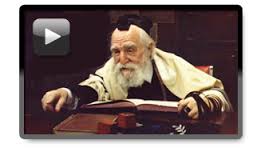רמב”ם הלכות תפילין ומזוזה וספר תורה פרק ד הלכה כה
קדושת תפילין קדושתן גדולה היא שכל זמן שהתפילין בראשו של אדם ועל זרועו הוא עניו וירא שמים ואינו נמשך בשחוק ובשיחה בטילה ואינו מהרהר מחשבות רעות אלא מפנה לבו בדברי האמת והצדק, לפיכך צריך אדם להשתדל להיותן עליו פ כל היום שמצותן כך היא, אמרו עליו על רב תלמידו של רבינו הקדוש שכל ימיו לא ראוהו שהלך ארבע אמות בלא תורה או בלא ציצית או בלא תפילין.
רמב”ם הלכות תפילין ומזוזה וספר תורה פרק ד הלכה כו
אע”פ שמצותן ללבשן כל היום בשעת תפלה יותר מן הכל, אמרו חכמים כל הקורא קריאת שמע בלא תפילין כאלו מעיד עדות שקר בעצמו, וכל שאינו * מניח תפילין עובר בשמונה עשה שהרי בארבע פרשיות צוה על תפילין של ראש ועל תפילין של יד, וכל הרגיל בתפילין מאריך ימים שנאמר ה’ עליהם יחיו
Laws of Tefillin in Mishneh Torah 4:25
The holiness of Tefillin is very great, to the extent that every minute that a man wears the Tefillin on his head and on his arm, he should be humble, fear heaven, and not be drawn to joking and idle talk and he should not think evil thoughts. Rather he should turn his heart to matters of truth and righteousness. Therefore a man must endeavor to wear the Tefillin the entire day, because that is the Commandment. They said about Rav (an Amora), the student of Rabbenu HaKadosh, that during Rav’s entire life, no one saw him walk four amot without a Sefer Torah or without Tzitzit or without Tefillin.
Mishneh Torah 4:26
Even though the Mitzvah is to wear Tefillin the entire day, it is most important that they are worn during the recital of the Eighteen Benedictions, the Amida, Our Rabbis have said: whoever recites the Kriat Shma without Tefillin is as if he is a false witness to himself, and anyone who does not wear Tefillin violates eight positive commandments because the four Parshiot (contained in the Tefillin) require the wearing of Tefillin on one’s head and on one’s arm. Whoever habituates himself to the wearing of Tefillin extends his days as it says: “If the name of Hashem is upon you, you shall live..” (Isaiah 38:16.)
for Historical Origins and Continued Sanctity please click here:

